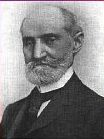Fever
Characteristic – Adapted to the strumous constitution, glands enlarged, indurated, scirrhous or open cancer.
Women, especially widows, children and girls who, though generally careful, become awkward, and let things fall while handling them (Bovista)
Bad effects of acute exanthems imperfectly developed or suppressed (Zincum met.), measles, scarlatina, urticaria.
Ailments from jealousy, fright, rage, vexation, bad news.
Irritable, nervous, fidgety, hard to please.
Weeping disposition, cannot help crying, discouraged, despondent (Ant-c., Pulsatilla).
Sudden, shrill, piercing screams from children while waking or sleeping (Hellebore, Tuberculinum.).
Edema: bag-like, puffy swelling under the eyes (over the eyes, Kali carb. ), of the hands and feet, dropsy, without thirst (Acet.ac., Apocynum).
Extreme sensitiveness to touch (Belladonna, Lachesis).
Pain: burning, stinging, sore, suddenly migrating from one part to another (kali bi., Lac caninum, Pulsatilla).
Incontinence of urine, with great irritation of the parts, can scarcely retain the urine a moment, and when passed scalds severely, frequent, painful, scanty, bloody.
Constipation: sensation in abdomen as if something tight would break if much effort were used.
Diarrhea: of drunkards, in eruptive diseases, especially if eruption be suppressed, involuntary from every motion, as though anus were wide open (Phosphorus).
Relations: Complementary: Nat.mur. Disagrees, when used either before or after Rhus.
Arsenicum and Pulsatilla follow Apis well.
In dyspnea Natrum follows where Apis only partially cures.
Aggravation: After sleeping (Lachesis), closed, especially warm or heated rooms are intolerable. Worse from getting wet (Ant.t., Calcarea, Rhus), but better from washing or moistening the part in cold water.
Amelioration. – Open air, cold water or cold bathing, uncovering.
Type. – Quotidian or double quotidian. Tertian most common. Congestive, continued, remittent, typhoid, typhus, yellow.
Time: 3 P.M. and 3 to 4 P.M. (4 p.m., Lycopodium )., 4 p.m., fever, without chill, 5 p.m., rarely, then night and morning paroxysms.
Prodrome: Sudden vomiting.
Chill: With thirst, always (Alumina, Arnica, Ing., Carbo vegetabilis, Caps.). Chill sudden, begins in front of chest, abdomen, knees, and runs down the back (reverse of Eup-purp. ), chill worse in a warm room, from external heat (Ipecac.).
Cannot bear heat of stove (ameliorated by heat of stove, Ignatia – ameliorated by external heat, Arsenicum ), chilliness renewed from the slightest motion (chill increased by motion, Caps. cannot bear to move or be uncovered in any stage, Nux ). Chill, with cold feet and fingers, heat of face and oppressed breathing (during sweat, Anacardium ). Oppression of chest as though patient would smother. Falls into a deep sleep as the severity of the chill passes off, Hepar during heat and sweat, Rhus. – during heat only, Ignatia ). Sensation of cold without external coldness of the skin, cold limbs and feet, with burning toes and burning cheeks.
Heat: Rarely with thirst, heat with inclination to uncover (Aconite, Secale), more or less violent headache and generally a continuous deep sleep (Opium), chilliness on moving or uncovering during heat (Am., Nux). Burning, hot, dry skin all over, particularly felt in abdomen, epigastrium and chest and hands, with muttering and unconsciousness, alternate dry and hot skin, or cool in some places and hot in others, with occasional spells of sweating. Great oppression and burning in the chest, with smothering. Itching, burning nettle – rash, in this stage (Ignatia, Hepar). The heat of the room is intolerable. Sensation of heat through whole body, especially on chest and region of stomach, without heat of skin.
Sweat: No thirst in sweating stage. Sweat after trembling and fainting, then nettle – rash. Perspiration may alternate with dryness of the skin. Sweating stage often absent, or of a light grade. Weak and trembling. Sleep, or sleepy.
This stage is usually wanting, and is characteristic of Apis fever in old protracted cases. – Carroll Dunham.
Tongue: Clean in old cases. In acute attacks, dry, red, with a raw, sore, painful tenderness, does not care to talk or protrude it. Swelling and burning of lips during entire paroxysm. No appetite, nor desire for food, craves milk, which relieves.
Apyrexia: Soreness and pain under ribs of left side, in region of spleen, great soreness of all the limbs and joints, feet swollen, urine scanty, restless, sleepless, urticaria and great debility. In old cases, badly treated by domestic and patent medicines. Natrum mur. often indicated if Apis fails to permanently cure. In either acute or chronic cases occurring as sequelae of eruptive diseases.
Chills and fever in seasons when the flies sting with unusual vigor. – Hering.
Difference between Apis and Bryonia
Apis
Time: 3.p.m., 3 to 4 p.m. Prodrome: Free from pain. Sudden vomiting. Chill: With thirst always in chill, absent in heat and sweat. Begins in front of chest, abdomen, knees. Oppression of chest as though he would smother. Sleep and urticaria as chill passes off. Heat: Oppression of chest with burning, smothering. Heat worse in the chest, abdomen, epigastrium. Urticaria, Sleep. Sweat: This stage is usually wanting. Sleep, Urticaria. Apyrexia: Soreness in spleen in all limbs and joints, feet swollen, urine scanty, urticaria.
Bryonia
Time. – All periods. Prodrome. – Stretching, and drawing in the limbs, headache, vertigo, and great thirst. Chill. – With great thirst in all stages. Begins in tips of fingers, toes and on the lips. Violent, dry, racking cough, with pleuritic stitches. Stitching pain in hypochondrium. Heat. – Cough, with pleuritic stitches. Heat as if blood in the veins was burning, headache and vertigo. Sweat. – Profuse, sour, easily excited by exercise. Thirsty. Irritable. Apyrexia. – Constipation of dry, hard, lumpy stools. Exceedingly irritable, everything makes him angry. Analysis: The time 3 p.m. is guiding. Chill with thirst aggravated in warm room, and from external heat. Chilliness with heat of hands and feet, the opposite of Belladonna, which has cold hands and feet and heat of head and face. No thirst with heat or sweat. Burning, oppression, smothering sensation in chest with chill and heat. Sweat with urticaria.

